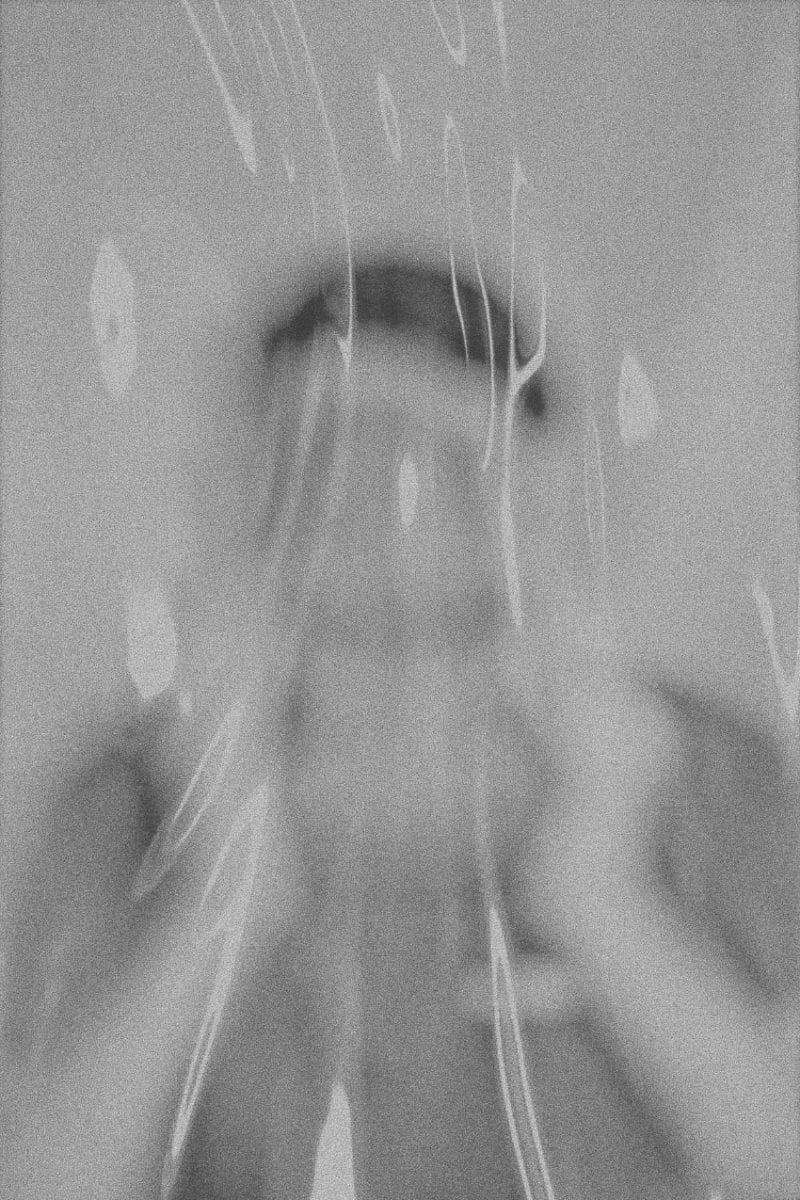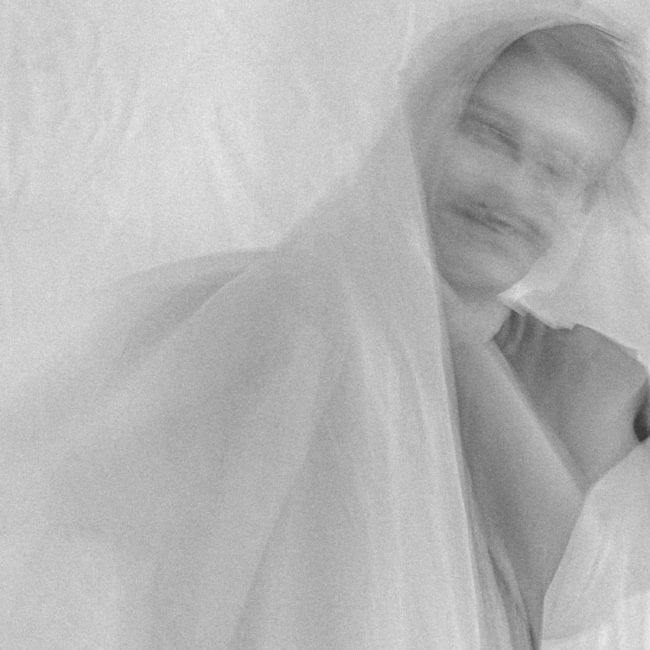Verraco only really captured the attention of the electronic music community in 2019, no thanks to the help of a certain podcast series, but, truthfully the work had started long before its release. Prior to 2019, he had been building a network, in his home town of Medellín, of like-minded producers, friends and DJs. He’d also been busy defining his own electrifying DJing skills and politically fervent electronic music. Music with a fresh and distinct Latin identity.
In 2017 he founded his own label, Insurgentes, with the aim of bringing more exposure to that talented network. The label, throwing banging parties in the capital, sharing passionate opinions on socio-political topics and a strong-armed defence of the Latinx electronic community he is part of, made European audiences take note of his growing momentum.
A chance to complete a Masters degree in Barcelona afforded him the proximity to make more of an impact as a DJ and producer. Opportunities grew during that time and he played a whole host of festivals including Mutek Barcelona, and appeared at world-renowned clubs including Tresor at their ‘New Faces’ event.
The time in Barcelona also led to a change in perspective on his production tools and a search for a unique sound he had been chasing. The comparison between formative releases and his new album highlight a significant step in skill, vision and delivery.
There has been such a distinctive change in direction and production standards that it’s harsh to use early releases as a benchmark, given the quality on show in ‘Grial’. Verraco was kind enough to provide an in-depth overview of his new work, his label and how he accomplished the shift in sound.
However, first, a guide to the new album is required. ‘Grial‘ can be construed as half a political affront to the Colombian state, half an exploration of the impurity of race or mestizo. It might sound like we’re getting deep in only the introductory paragraphs but, it’s fun and added to the mix is also a rebellious middle finger to western communities who still hold rose-tinted views of Latin American music. ‘Grial’ is his sonic fiction representation of those struggles.
The connection to politics and the exploration/deconstruction of identity is not a fashionable one. It’s something he has been actively involved in promoting, debating and channelling through music for quite some time. This connection extends to Insurgentes, the label that he runs. His label mates and network have predominantly sought to establish a distinctive voice of young, political and passionate producers across South America in the past 4 years.

“It felt like, if we are Latins, we need to sound tropical. Fuck them, fuck that. We want to defy those opinions”
There has also been a focused effort on recalibrating the judgement made by European and North American audiences in regards to Latin electronic music and the connotations associated with the musical output from the region. Insurgentes releases have doubled down as experimental productions and weapons to dismantle the western perception of Latin as tropical, beaches and simplistic mainstream electronic music.
An IDM mini-album from Argentinian Seph and Tomás Urquieta’s stompin’ bass EP this year, plus a forthcoming compilation “tipped to be the most beautiful project they have embarked on” are excellent retorts to those perceptions. And the 10 tracks presented in ‘Grial’ are too fragile, sonically obscure and explosive to warrant historical comparison with mainstream electronic Latin music.
That being said, old school Reggaeton was and continues to be a huge part of Verraco’s, and his compatriots’ lives. So much so last year the Insurgentes collective launched a sub-label, TraTraTrax, that will celebrate their passion and love for Reggaeton with the contrasting metallic sounds of futurist, melancholic electro.
Verraco and the Insurgentes collective have consciously cultivated this common aesthetic, although one that grew organically. “It’s not like we get together to say ‘okay, let’s sound like this’. Maybe it’s because we all have similar roots.”
Both have also never hidden their political beliefs and aim to encapsulate the basic urge to “resist”. Themes of insurgency and resilience were intention channelled from the very beginning. Verraco was impassioned when he discussed the political nature of past releases and what influenced ‘Grial’.
“Our adverse context also fed those narratives. On one side, that rage was channelled against these extreme Latam right-wing governments, but it was also like a sonic resistance because many people told us that we can’t sound the way we are sounding.”
“Many people in Latin America have an essentialist viewpoint,” he continued. “It felt like, if we are Latins, we need to sound tropical. Fuck them, fuck that. We want to defy those opinions too.”
Does he feel music has to be political? The answer was emphatic. “For us, in general, yeah, the best music has always been political. Lesson learned from 3D, Daddy G and Mushroom.”
A shared love for Basic Channel, Chain Reaction, Bristol Bass and all the mad stuff that appeared from Cornwall in the late 80s and 90s meant the collective soon found common ground and has since contributed to a unique style that he describes as “Sudaca Braindance.”
The correlation between these influences, pounding polymetrics and FWD-thinking club producers like Slikbak, 33EMYBW or Lurka can be spotted throughout ‘Grial’. There is a dramatic selected ambient works style outro and a clattering of sounds, pulses and tingling tones in a Chevel or Lee Gamble ilk. For the most, it is completely refreshing and brave.
Perreo drum rhythms, a form of reggaeton borne out Puerto Rico in the late ’80s, and a jungle-inspired ambiance ensure that the tracks have a purpose and provide the skeleton for other components to cling to. The melancholy and trancey references arise and take prominence at certain points as harsh signals, backed by soft melodies, battle with long hefty synth lines. It’s luckily not too inaccessible or cerebral given the underlying Perreo polyrhythm that exists.
DJ Python dembow referencing rhythms aside, the lavishly applied spatiality you hear in some tracks comes from a series of precisely collected field recordings. These were not lazily mangled together, but an exact animate accompaniment to the story of an individual track. “This is exactly what I tried to do in the album, collecting sound and memory from my surroundings.”
On “Abya Yala” the impact of such a recording is probably most audible, plunging you into an Andean ecosystem, brimming with life. An oscillating pseudo wind instrument adds a traditional, earthy quality. He added, “I feel field recordings can’t always be random picks: The place where you pick them up must have a story and intentionality related to the track’s narrative.”
Played through studio monitors the tracks seem like they are coming from hidden tweeters or different parts of the room. And there is no escaping the quality of the mastering which is distinct and clean. This accolade is awarded to the messiah of mastering, Rashad Becker, of Dubplates & Mastering fame. The matchup was intentional and Verraco was overjoyed when Becker agreed to work on the project.
“It was very special that he was interested in working on this. The great thing about Rashad is that he has an incredible sensitivity to enhance your work while remaining faithful to the original idea.” Becker with his apparent displeasure for loudness was able to achieve “a perfect balance between the intentional contemplation and dancefloor functionality.”

"I just want to have a good time jamming around and suddenly something sounds “good” and then I say: 'this has the potential to be a track'. Then it stops being fun"
Heading back to the narratives of the album, track titles themselves indicate a fight against colonisation, identity and political oppression. Take the exceptional track “Breaking Hegemonies” as an example. The thinking behind the title is linked to, “a desire to break multiple forms of coloniality. It is what I would call in Spanish ‘sicariato sónico’.”
The track itself could be mistaken for a Zuli vs. Special Request collaboration. A 170bpm artillery missile so booming your wig will fall off as you attempt to make sense of the complex arrangement. An ‘ardkore filtered jungle drum-break is the precursor to rocket-fuelled death star keys in search and destroy mode. The track vanishes at the midway point. Silence. Then crash, bang wallop, returning like a crack of lightning in a storm. Shame you can’t hear this in front of a huge system.
In another politically referencing track, “Pluriverso” tells the story of the possibility of multiple universes, some synthetic, others more human and organic, coexisting and building utopias. How that translates to you or me in musical form, is a glistening sparse sound architecture against a raw indigenous sound recording. Akin to early cinematic braindance of Venetian Snares and Raster Noton’s immaculate and clinical minimalism, counterposed with Rainforest Spiritual Enslavement.
The idea of colliding different sonics, styles and tempos with razor-sharp sound design is one that is influenced once more by Mestizo and is Verraco’s way of channelling the archaic view of the impurity of mixed-race Latins into a sonic form.
In “●” a transcendental synth line dominates with warmth and emotion. Any Ibiza sunset nostalgia is removed with the appearance of militaristic drum rolls and fizzing off the grid modulating sonics skits, and a signal, perhaps, that Verraco is heading into battle.
Despite his admittance that he is “kinda proud” of his primitive Insurgentes releases, the resources and knowledge were not available to him to reach his “sonic vision”. With ‘Grial’, the gap has been bridged, and he feels much happier and assured that he has the tools at his disposal which allow him to produce the kind of timbres he has been searching for.
“For the first time, I was able to develop sounds and arrangements that I imagined in my head”. Having concrete themes and ideologies that he wished to express for the album, and now the means for those ideas to materialise, meant the album evolved in a way he was very satisfied with.
Joining an increasingly long list of experimental producers adventuring with modular synthesis he continues to be inquisitive and respectful about the exponential sound forms this method creates. “Currently, I’m starting from the curiosity and patch experimentation with my modular system.”
The extensive and complex methods for generating and changing sounds with modular synths can be overwhelming. The experiments, although sometimes creating aggravation, ultimately paid dividends.
“Sometimes it’s a bit annoying because I just want to have a good time jamming around and suddenly something sounds “good” and then I say: ‘this has the potential to be a track’. Then it stops being fun because I cut off the flow and embark on a journey of trying to finish the track. This process takes, at least, a month.”
The development, however, of a remarkable personal sound has been born in ‘Grial’. “Let’s say that thinking about patches, and the modules you choose also shapes a particular sound, which begins to give you an identity. I think I already have a chain of processes that have been sculpting my sound recently.”
The inclusion of hardware has been a conscious decision, although he was quick not to get caught up in the boring debate of analogue vs. digital. His concern was more ‘what do I need to help create the sounds that I am seeking?’
“I don’t know if [modular synthesis] are more expressive. Maybe the physicality of it encourages me to be a little more imaginative”, he added. The push to be more imaginative resulted in a more fluid dialogue between himself and the machines.
In many of the tracks, the lack of conformity or stuck to the 4/4 grid can be heard via immeasurable numbers of short, sharp blasts of self-generated sounds, arriving at irregular angles and frequencies.
The appearance and disappearance in an instant of one-off ‘90s flavoured snare and rim shots, for example, are neat and fun. Extra audio effects through the use of pedals and DAW devices helped to avoid tracks becoming too cliched (see here countless cross-over house tunes in the past 3 years rinsing the same vocal, drum-break or hi-hat of a classic jungle or DnB track).
Check out “NRG Remains” and you’ll see the ingenuity. This is a dreamy space breakdance that bubbles up under classy dubstep bassline pressure whilst bleeps, squelches and pulses decompose and regrow lickety-split into original form. There are so many textures, timbres and frequencies all scrambling for attention, it’s difficult to focus on a single element.
The hybridisation of many different tempos, frequencies and programming patterns is exciting. Inspiring genre-busting producers like SND, DJ Nigga Fox, Nidia and Simo Cell, who Verraco holds in high regard, seem to share the same aesthetic of the amalgam of patterns.

“I feel field recordings can't always be random picks: The place where you pick them up must have a story and intentionality related to the track's narrative”
He said, “the best bit is exploring resources that can lead me to a sound with refreshing timbric tints.” The equipment is restricted to a minimum in order to put up some boundaries and limit the possibilities of options. These include an Elektron machine, max4live devices and some other secret pieces. He also seems to share the idealist view that machines can help escape the drudgery of daily life, to another world, a utopian world of cyborgs and outer world life.
A swirling and rave inducing vocal on “Traición (10mente mix)” could have been nabbed from a dark cut of an unheard Burial track. The complete twist in sonics, panning, breaks and drops is sensational. An electroid synth that would please Mike Parker feels like cyborg communication being squeezed through a phone line he borrowed from Morpheus.
If you have seen Verraco play live, checked a podcast or Soundcloud mix, it’s evident the spirit of breaks, bass and jungle flavoured acid are alive. A spirit that is covertly and cleverly woven in ‘Grial’. The album was not intentionally a dance floor concept per se, but certain tracks would be welcomed at dance floors pushing a much more modern take on “club music”. Nods here go to Nyege Nyege Tapes, Principe, Svbkvlt and the Timedance/Livity/Idle Hands axis.
Whilst on the topic of DJing in general, he explained, even with a good connection to the floor and love for more simplistic styles, he considers himself not to be a good dancefloor producer. “I can and love to play straight 4/4 Mike Parker x Donato Dozzy kind of vortex techno all night long. Ok maybe not all night long but some hours for sure [laughs].”
The omission of those intoxicating, mind-bending club tracks he loves to play, is certainly nowhere to be found in the album. But considering his stance on what he loves to play vs. what he produces, he talked about the balance between production and DJing, and how both processes connect to each other.
“I feel them as totally different processes. I like to select, organise and install narratives while DJing.” Whilst producing, on the other hand, “is a different kind of communication. It’s understanding how I can command some machines, without thinking if it will be functional or not.”
He does not feel a natural affinity to either, moreover, they should ultimately complement one another and feels the specialisation of a single craft is often overlooked. “I hate the idea that you have to do multiple things to be successful. In fact, many of my favourite DJs are just DJs. The thing is that there are so many people filling the digital world with rubbish, that if you can do both properly, I guess it will help you more.”
Direct and no bullshit responses indicate a clear vision, ideology and belief in his skills and processes. With ‘Grial’ he has managed to make a statement strong enough to support those beliefs. As a story and representation of his continued political resistance and pride in Latin American artists, it is passionate and technically impressive.
By moving into more complex, provocative and rebellious production techniques – and thus creating richer sonic constructions – Verraco has created a future-facing spectacle of his musical utopia. That alluring spectacle is something worth keeping your eye on.
Oh and the things he will be most looking forward to in 2021? “Going through the night without fear, sweating reggaeton and drinking Aguardiente with my friends in Medellín.”
‘Grial’ is scheduled for release 30 October via Insurgentes. Order a copy from Bandcamp.
Photography by Cartel Urbano and Santiago Marzola
TRACKLIST
1. ●
2. Pluriverso
3. NRG Remains
4. Sur — Furia
5. Abya Yala
6. +Decodification__
7. Breaking Hegemonies
8. Traición (10mente mix)
9. E.M.R.I. | The Last Alliance
10. Our New Order



